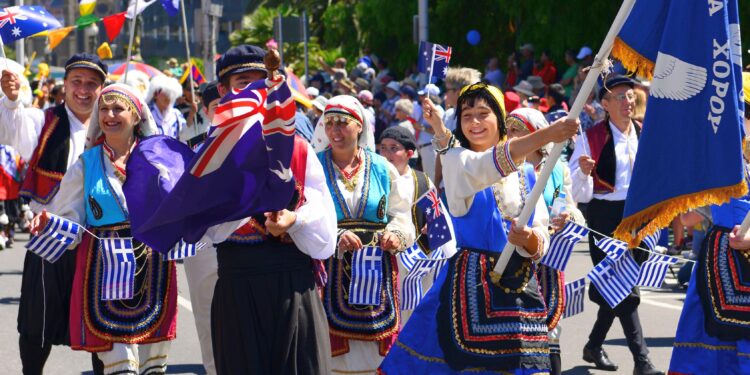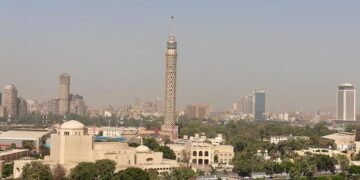The Greek Community of Alexandria: Between the Past and Present
As one of the oldest and most distinguished Hellenic communities in the world, the Greek community of Alexandria has weathered centuries of change, from the city’s storied past as a center of learning and culture to its current status as a vibrant hub of diversity. Once a beacon of commerce and enlightenment, Alexandria has seen its Greek population dwindle over the decades, yet the community remains resilient, preserving its unique heritage amid a rapidly evolving environment. This article explores the intricate tapestry of the Greek presence in Alexandria, examining the historical roots that have shaped its identity and the contemporary challenges and triumphs faced by its members today. Through interviews with local leaders, historians, and residents, we delve into how this storied diaspora navigates the complexities of maintaining traditions while engaging with an increasingly globalized society. Join us as we uncover the layers of history that define the Greek community of Alexandria and reflect on their enduring legacy in this iconic city.
The Legacy of Hellenism: Exploring Alexandria’s Historical Greek Influence
The city of Alexandria stands as a testament to the enduring legacy of Hellenism, serving as a cultural melting pot where Greek traditions and local customs intertwined to create a unique identity. From its founding by Alexander the Great in 331 BC, the city quickly blossomed into a hub of education, philosophy, and arts. The Library of Alexandria, once the largest in the ancient world, symbolized the height of scholarly achievement, attracting great minds such as Euclid, Archimedes, and Hypatia. Today, visitors can explore the remnants of this illustrious past through sites like the Catacombs of Kom el-Shoqafa and the Pompey’s Pillar, which offer profound insights into the elaborate lifestyle and governance in ancient times.
In the modern context, the Greek community of Alexandria continues to preserve the Hellenistic spirit through various cultural initiatives and organizations. Institutions such as the Greek Community of Alexandria work tirelessly to maintain the traditions that have shaped their identity for centuries. Key activities include:
- Educational programs that promote the Greek language and heritage.
- Cultural festivals that celebrate Greek history, food, and music.
- Preservation efforts for historical sites and artifacts.
This harmonious blend of past and present not only enriches Alexandria’s cultural landscape but also reinforces the connection between the city’s ancient Greek roots and its vibrant contemporary community.
Cultural Resurgence: Revitalizing Greek Heritage in Modern Alexandria
In contemporary Alexandria, there is a palpable sense of cultural resurgence within the Greek community, an effort to breathe new life into their rich heritage. Local initiatives have taken shape aimed at preserving and promoting traditional crafts, cuisine, and music that have long been part of the city’s tapestry. Notably, workshops conducted by artisans focus on traditional Greek pottery and textiles, rekindling interest among younger generations. Community festivals, characterized by vibrant displays of folk dances and culinary exhibitions, have become increasingly popular, drawing both locals and tourists alike.
Furthermore, the collaboration between local Greek schools and cultural organizations has fostered a renewed interest in Greek language and history. Educational programs are being developed, highlighting important figures from Alexandria’s Hellenistic past, forging a connection between students and their ancestors. These programs have not only strengthened community ties but also attracted interest from diverse demographics, thereby enriching the multicultural mosaic of Alexandria. The revitalization of Greek heritage stands as a testament to the resilience and vibrancy of a community that honors its past while embracing the future.
Bridging Generations: Strategies for Engaging the Greek Community Today
As the Greek community of Alexandria navigates the complexities of modern life, establishing direct lines of communication between generations emerges as a pivotal strategy for sustaining its cultural heritage. Parent-community dialogues, organized workshops, and community forums can serve as platforms for the older and younger generations to share stories, experiences, and traditions. These initiatives not only foster mutual understanding but also instill a sense of continuity and belonging within the community. Participation from local schools and cultural institutions can enhance these programs, encouraging youth engagement through activities that celebrate Greek art, music, and cuisine.
Furthermore, leveraging technology is essential in bridging the gap between the young and old. By employing social media campaigns and online platforms, the Greek community can disseminate information about events, share cultural content, and promote local heritage to a wider audience. A dedicated online space, such as a community website or mobile app, can facilitate connections and allow for seamless interaction. To illustrate the focus areas, consider the following table highlighting proposed activities:
| Activity | Description | Target Group |
|---|---|---|
| Storytelling Nights | Gathering for sharing traditional folktales and family histories. | All ages |
| Cooking Workshops | Hands-on sessions bringing generations together to cook traditional dishes. | Youth and adults |
| Cultural Festivals | Celebrating Greek heritage through music, dance, and art exhibits. | All ages |
Key Takeaways
As we delve into the enduring legacy of the Greek community in Alexandria, it becomes evident that this vibrant enclave is a living tapestry woven from threads of history, culture, and resilience. The past echoes through the streets of this storied city, where remnants of a once-thriving Hellenic presence continue to shape the identity of modern Alexandria.
Today, as members of the Greek community navigate the complexities of contemporary life in Egypt, they remain steadfast in their commitment to preserving their unique heritage while contributing to the multicultural fabric of the city. From cultural festivals to educational initiatives, the community finds ways to celebrate their rich history while fostering dialogue and connection with other cultural groups.
The story of the Greeks in Alexandria is not merely a tale of nostalgia; it is one of adaptation and survival, reflecting the broader challenges faced by diaspora communities around the world. As Alexandria moves forward, the presence of its Greek heritage serves as a reminder of the city’s historical significance and the enduring spirit of its people.
In this ever-evolving landscape, the Greek community stands as a testament to the complexities of cultural identity, reminding us all of the importance of understanding and honoring the past while forging pathways to a more inclusive future. For more insights and updates on this dynamic topic, stay connected with eKathimerini.com.














